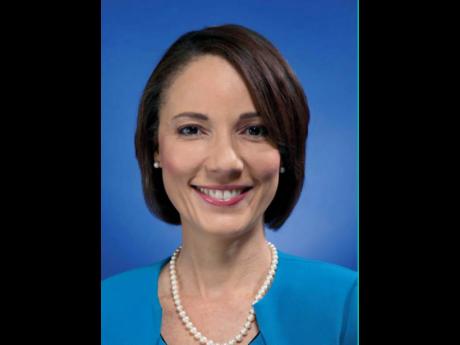Stay out ... Committee says no to pre contract vetting by anticorruption bodies
A SENIOR member of the Portia Simpson Miller-led Govern-ment has said that anti-corruption agencies, by some of their actions, have "cost the country dearly".
Chairing the joint-select committee of Parliament consi-dering the Integrity Commission Act on Wednesday, Justice Minister Mark Golding said that there have been examples of major projects that have been stymied because of investigations that have been undertaken before the conclusion of contracts.
"There was the divestment of WINDALCO (West Indies Alumina Company), where it was held up for a protracted period of time by the intervention of one of these agencies, and then ultimately, when the sale was concluded, they got a lower price than they would have got had the original deal been completed," Golding said.
The Office of the Contractor General (OCG) had insisted on a second valuation for Jamaica's seven per cent stake in WINDALCO, resulting in a delay in concluding the deal.
COSTLY INTERFERENCE
Last year, the managing director of Jamaica Bauxite Mining Limited (JBM), Coy Roache, blamed interference from external agencies for Jamaica's debt to UC Rusal climbing from US$14 million in 2011 to US$21 million. Roache said Jamalco would have been able to save US$7 million if Government had intervened.
"There are several examples of major transitions where the attempt to intervene in the process before a contract has been concluded has led to
a significant delay and ultimately, not necessarily any improvement in the outcome," Golding said.
Members of the joint-select committee of Parliament pushed back on a suggestion from the OCG for the entity to be granted powers to investigate contracts before they are awarded.
With the exception of Kamina Johnson Smith, an opposition senator, members present at Wednesday's sitting of the joint-select committee said it would further slow down the process of contract awards.
Johnson Smith argued that part of the lack of trust in Jamaica's system stems from situations like the taking of the OCG to court by a government minister to prevent it from investigating a matter.
"If we are only allowing for ex post facto - not that I don't understand the business justification behind it - but if we are looking at better regulation of corruption by public bodies, then it must be that we ensure that body is sufficiently empowered," she said.
In its submission to the commission, the Private Sector Organisation of Jamaica (PSOJ) said that commercial divestment should be investigated ex post facto to avoid delays in time-sensitive transactions.
Golding noted that the OCG wanted to step in before the contract has been inked.
"If you allow pre-emptive strikes, you could seriously impede the efficiency with which business is conducted," Golding said as he interpreted the position of the PSOJ.
Committee member Peter Bunting went further, saying that allowing the commission to investigate before a contract is awarded would be "giving executive authority to the Integrity Commission because they could block the authority of the Executive (Cabinet)".
Bunting said further that he was not in favour of a "trend where people want to take power from democratically elected officials and give it to unelected and unaccountable officials".
Committee members Derrick Smith, Delroy Chuck, Imani Duncan Price, Lambert Brown, and Arnaldo Brown all expressed support for the position to keep the Integrity Commission out of the pre-contract phase.
'INJURIOUS TO INVESTMENT'
Arnaldo Brown said that there have been occasions where anti-corruption bodies have operated in a manner that is "injurious to investment and the pace at which investment moves".
Chuck said that if the anti-corruption authority is to go in before a contract is awarded, "no contract would be signed in Jamaica" because of how difficult the process is.
Golding said that he is not opposed to having the commission asking public bodies to provide information on what they intend to do, but said he would have a difficulty if it is able to decide whether the contract should be signed.



